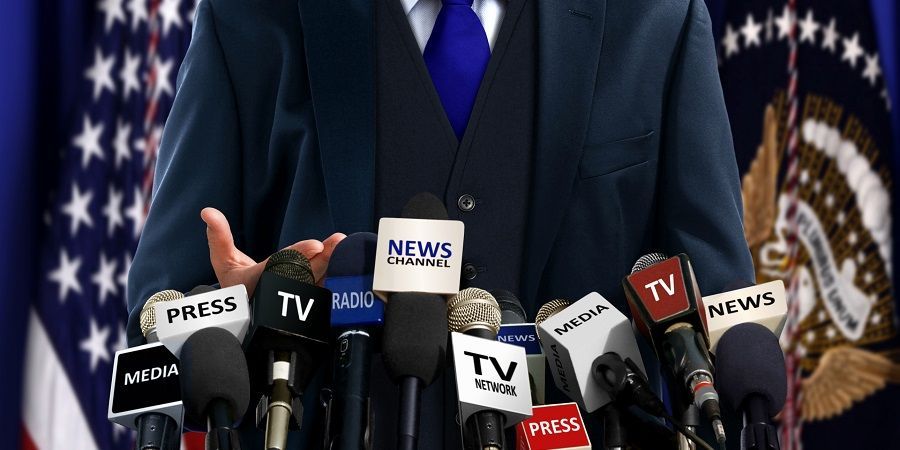The 12 men will remain in U.S.-run detention facilities in Iraq because the interim government does not yet operate any high-security jails. But the transfer of legal custody, negotiated between Iraqi and U.S. officials over the past few weeks, will allow Iraqi investigators and prosecutors to question the men as needed and have them brought to court.
"I know I speak for my fellow countrymen when I say I look forward to the day former regime leaders face justice," Allawi said at a news conference.
The announcement of legal proceedings against Hussein and others, including former vice president Taha Yassin Ramadan and former deputy prime minister Tariq Aziz, was the first official pronouncement by the interim government, which was handed political authority by the United States in a hastily arranged ceremony on Monday. "We would like to show the world that the Iraqi government, the new Iraq government, means business," Allawi said.
The handover of power did not diminish the pace of insurgent attacks against the 141,000 U.S. troops in Iraq. Three Marines were killed and two were seriously wounded Tuesday when a roadside bomb ripped through their convoy on a four-lane highway in eastern Baghdad. Insurgents also fired mortars at a U.S. base in Balad, 50 miles north of Baghdad, and strafed a patrol with small-arms fire in the capital's Adhamiya district. The Associated Press reported that an Iraqi civilian was killed in the Adhamiya attack.
Iraqi government institutions, another frequent target of insurgents, also came under attack in several areas. In the most serious incident, gunmen stormed a police station in Mahmudiyah, a town about 15 miles south of Baghdad, killing two people.
Three Turkish hostages who had been captured over the weekend and threatened with execution were released Tuesday, Turkish Foreign Minister Abdullah Gul said. The al-Jazeera satellite television network reported that the captors, members of a group affiliated with the Jordanian-born militant Abu Musab Zarqawi, freed the hostages "for the sake of their Muslim brothers."
In the new government's first official event, President Ghazi Yawar accepted the credentials of U.S. Ambassador John D. Negroponte, who has replaced L. Paul Bremer as the top American civilian official in Iraq. Yawar's acceptance of the credentials restored diplomatic relations between Iraq and the United States, which were severed after Iraq's 1990 invasion of Kuwait.
Negroponte, who has served as ambassador to Honduras, the Philippines, Mexico and, most recently, the United Nations, said the goal of the new U.S. Embassy in Iraq, which replaces the U.S. occupation authority, was "to support the fully sovereign government of Iraq as it seeks to build a strong and free society."
"The future is in their hands," he said of the interim government. "America's policy is to be Iraq's respectful and supportive friend."
Shortly before Negroponte met with Yawar, a special tribunal issued arrest warrants for Hussein and the 11 others whose legal custody will be transferred to the new Iraqi administration. The warrants were "based on suspicion of crimes that have been committed," said Salem Chalabi, the president of the tribunal, which was formed last year to try Hussein and other senior leaders accused of human rights abuses. Chalabi said prosecutors would eventually seek to charge Hussein and his lieutenants with genocide, crimes against humanity and war crimes.
The tribunal plans in the near future to ask for legal custody of several other senior members of the former government, he said.
But Chalabi suggested it was unlikely that trials of any senior leaders would begin this year. Reams of documents still must be pored over, mass graves must be exhumed and scores of witnesses must be interviewed by the tribunal's investigators, who are just beginning their work with the assistance of American and other international specialists, he said. He said it was possible that a "first batch" of indictments would be handed up in several months, but that the actual trials would not start until later.
Chalabi cited the poison gassing of the Kurdish village of Halabja in 1988 as an example of the challenge facing investigators. "We haven't quite figured out which military unit did what," he said. "How many people exactly were killed? All this kind of stuff. It's just general information that we have."
Allawi warned that the process could drag on, as it has with similar tribunals elsewhere. "We will show that justice will prevail ultimately, regardless of how long it will take to be implemented," he said.
If Hussein, whose palaces and assets have been confiscated by U.S. forces, cannot afford a lawyer, the government will pay for one, Allawi said with a smile. "We assure you that it will be a just trial and a fair trial, unlike the trials that he afflicted on his enemies, on the Iraqi people," he said.
Justice Minister Malik Douhan Hasan said Hussein could be represented by a foreign lawyer only if an association of Iraqi lawyers agreed. Hussein's daughters, who live in Jordan, have reportedly hired foreign attorneys for their father.
Some Iraqi officials have voiced concerns that Hussein's trial, which the government has promised will be open to the public and the news media, will provide him with a forum to grandstand and possibly an opportunity to rally insurgents. But Chalabi said strict rules would be imposed to prevent defendants from using the proceedings as a soapbox.
A senior U.S. government lawyer in Baghdad, who spoke on condition of anonymity, said it was likely that lesser figures than Hussein would be tried first as part of the process of accumulating evidence and building cases against those in the top positions. The eventual charges against Hussein would likely focus on command decisions involving mass crimes against Kurds, Shiites and other ethnic and religious groups in Iraq, the lawyer said.
U.S. and Iraqi officials familiar with aspects of Hussein's interrogation, which was conducted by the CIA and the FBI, said the former president did not provide extensive information, prompting the White House and the Pentagon to agree to the request for a transfer of legal custody. The officials said some of Hussein's aides had been more cooperative. Although transcripts of their interrogation sessions cannot be admitted as evidence at the tribunal, they can be used to help investigators assemble evidence and locate witnesses.











